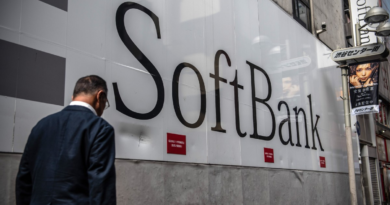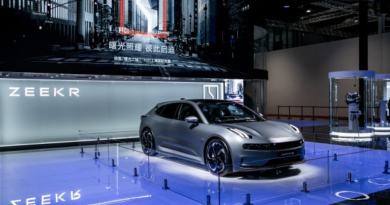Epic Games won its antitrust battle with Google. But what comes next?
Google’s defeat in its antitrust battle with Epic Games was a sweeping victory for the Fortnite maker and a significant upset to the business model underpinning the mobile app ecosystem, where platforms host app stores and then take a cut of developer revenues. But what does the ruling actually mean, at least in the near term, for app developers? That’s something that remains to be seen, as the case isn’t over until a judge renders a decision as to what, specifically, Google’s penalty should be.
A San Francisco jury on Monday swiftly returned a verdict in Epic’s favor in a matter of hours — not days or weeks — finding that Google “willfully acquired or maintained monopoly power by engaging in anticompetitive conduct,” as a court filing states. But while the jury determined the liability in the case, it’s still up to the judge to decide what the remedy will be. That means the two parties will still get to plead their cases to the court later in January with the hope of shaping exactly how Google will need to adjust its operations to make up for its anticompetitive behavior.
More than likely, Google won’t roll out any significant changes to its Google Play Store until the judge makes this final decision as to what, exactly, needs to be done. If it did so voluntarily before the decision, it would only complicate matters further if the judge then ruled that other actions needed to be taken.
In other words, over the next several weeks or months as the case enters its remedial phase, the Play Store isn’t changing its rules. Developers will still need to pay their commissions, as before, often passing the increased cost of doing business onto consumers, also as before. Google’s side deal forged with Spotify and settlement with Match will also remain intact.
We don’t know yet if U.S. District Judge James Donato, who tried the case, will force Google to unwind any of its deals, or if the court will specify what sort of competitive agreements Google can enter into in the future with regard to app publishers or OEMs. Nor do we how the judge will manage the specifics around alternative app stores or third-party payment systems — for example, by dictating the discounts Google should offer. Epic will likely argue for more specific and detailed guidance from the court, while Google will push the court to understand that it still has a business to run and that too much restriction would ultimately harm competition.
“The court is going to be trying to strike a balance to restore competition in these markets where the jury has found competition has been restrained,” explained Paul Swanson, a partner at law firm Holland & Hart, where he advises clients on antitrust implications of their corporate relationships and represents them in antitrust litigation. Still, he believes the court will try to do so in the least intrusive way possible, given that it won’t want to make Google itself a non-competitive entity. That means the court is not likely to engage in “too much tailoring” of the remedy, he says, and will instead focus on expanding choice around the downloading and purchase of Android apps.
Instead, what is immediately changing as a result of this ruling is the legality surrounding the app store business model itself — and potentially others.
“What we know right now is that this is going to impact the walled garden business model Google and Apple and other companies have enjoyed for a while,” Swanson said.
He believes the decision may also impact other marketplaces where a company has created its own platform and therefore gets to dictate the rules of the road, like the app stores’ 30% commission. While Apple successfully argued in its antitrust case with Epic that it has a single product that integrates the hardware with iOS and with the App Store, the jury in the Google case came to a different conclusion. They found that app buying and distribution are separate markets, which may lead other big companies that have similar models to Apple’s iOS and Google’s Android operating systems and the App Store and Play Store to reconsider how their businesses should run.
“That’s where they go, okay, there’s some real uncertainty in our fundamental model for how we do business,” Swanson noted. In fact, the legal risk from this business model may encourage other businesses to change, even without being dragged to court.
Plus, Swanson said there could be class action lawsuits brought forward that will allow other potential plaintiffs to argue their own cases, without needing to have the deep pockets that Epic does. There is a path that’s been placed for others to follow, he added.
However, there haven’t yet been rumblings of other lawsuits from app makers, said Rick VanMeter, Executive Director of the Coalition for App Fairness (CAF), an Epic-founded lobbying group that includes other founding members and app developers in favor of increased competition in the app economy, like Spotify, Match, Tile, Deezer, Basecamp and more. In total, the group which began with just over a dozen members now has more than 70. While it’s mostly focused on pushing forward legislation, like the Open App Markets Act introduced in the last U.S. Congress, VanMeter believes this ruling is significant because this case involved consumers — the members of a jury — looking at the facts and determining that Google’s conduct was anticompetitive.
“I think when consumers do learn about these issues, and when they have an opportunity to see what is actually happening behind the scenes…I think they do understand it and do want change,” VanMeter said.
Still, he and CAF remain skeptical about how Google will implement the judge’s decision when it comes to pass, pointing to other ways Apple and Google have managed to skirt the spirit of the law or a court’s ruling. For example, Google opened up a pilot program for alternative payments, but its 4% discount on commissions often means the developer ends up paying more when they have to pay their own payment processing fees. And when Apple was ordered to allow dating apps in the Netherlands to use alternative payment systems, it simply paid the fine for weeks on end for not implementing the change.
“I don’t think either company, including Google, can be trusted to comply with the intention of the ruling,” VanMeter told TechCrunch. “I think, for our members, having more specificity and clear rules of the road that will prevent them from circumventing the ruling would be our preference.”
He also thinks that the ruling could prompt the Supreme Court to take up Epic’s other suit against Apple.
“It’s our hope that the Supreme Court will look at it and want to review it, and side with Epic,” VanMeter said. But he admits he’s not sure how the court would interpret a ruling on another case. “To the extent that it encourages them to look at the case and open it up and do a full review and rule on this, I think that would be great,” he said.
Swanson also agreed the Google-Epic ruling may not directly impact Apple’s ongoing case with Epic, although it does demonstrate the obvious consumer interest, which resulted in the jury’s quick decision. But how the two platforms achieved market power was not the same. Apple didn’t regularly engage in side deals (though it considered one with Netflix) nor did it pay developers to launch on its app store instead of theirs, as Apple only offers one route to app distribution: the App Store. It also doesn’t have agreements with OEMs, as it makes its own hardware. So while there are parallels with Google, there are also stark differences.
Though Epic itself championed the verdict as a “win for all app developers and consumers around the world,” in its statement, the reality is that the ruling is just one of many dominoes that need to fall to truly dismantle the app store business model. Just as important, or maybe even more so, is the coming legislation in other markets, like Europe’s Digital Market Act, set to go live next year, the U.K.’s Digital Markets, Competition and Consumers Bill, and regulations being considered in other markets including Brazil, Japan, Australia, Canada, and the U.S.
For CAF, the hope is that the Google-Epic decision will at least prompt Apple to re-examine its business model.
“Just because it is your business model does not mean it is legal or that it’s right,” VanMeter pointed out.




